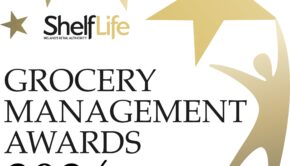Small benefit exemption from €500 to €1,000 will be welcomed, says EY Ireland

"Vital that once-off supports will be rolled out immediately in many cases, including the new Business Energy Support Scheme," says EY Ireland's David McNamara
27 September 2022
Business energy supports, employee rewards and the ommission of capital taxes were all aspects of Budget 2023 commented on by EY Ireland in its reaction to the Budget.
Alison McHugh, partner, Tax and head of Private Client Services, EY Ireland has reflected on these areas below.
Business Energy Support Scheme
“The Minister for Finance announced a temporary business energy support scheme for SMEs to assist them with additional costs as a result of rising inflation and energy costs.
“This relief will be available to businesses carrying on a ‘case I’ trade, such as manufacturing businesses, who have experienced a significant increase in their natural gas and electricity costs. The scheme will only apply to those businesses that are tax compliant and who are experiencing a 50% or greater increase in the average unit price of electricity in 2022 compared to 2021 prices. The relief will be calculated based on 40% of the increase but subject to a cap of €10,000 per month. Interestingly the Minister for Finance referred to ‘case I’ trades in his speech which would indicate that those businesses carrying on a profession under ‘case II’ may not be in a position to participate in this scheme, even if they would otherwise meet the criteria with regard to the substantial increase in the cost of electricity per unit. We await further details on this.”
Employee rewards
“Attraction and retention of top talent is a key focus for most employers. The extension of the Key Employee Engagement Programme (KEEP) to 31 December 2025 will be welcomed by employers wishing to provide share based remuneration to their employees. The additional change to allow employers to buy back shares from employees will also be welcome. The change will allow employees to realise value from their options without depending on an external buyer. This has the potential to open up the scheme to many more employers, including family businesses, who might previously have found KEEP unworkable.
“The increase of the small benefit exemption from €500 to €1,000, although not significant, will be welcomed. This allows employers to reward employees at a time when they are likely feeling the pinch from the current cost of living crisis; this increase applies for 2022 also and can be paid in two vouchers. Therefore where an employer has already given a €500 voucher to employees under this scheme in 2022, they will not be prevented from making a second payment to allow the employee to fully utilise this exemption.”
Capital taxes
“Capital Taxes did not feature in this year’s budget. Whilst a number of changes to the CGT and CAT codes were recommended in the recent Commission on Taxation Report, interestingly the Minister for Finance did not make any mention of these recommendations in his budget speech – although did call out the proposed changes to other areas covered in this report such as the income tax system, REIT and IREF regime and the funds, life assurance and other investment products.
“The Minister confirmed that any recommendations contained in the Commission on Taxation Report are “clearly not intended to be implemented immediately but rather provide a clear direction of travel” for the future. Thus we wait to see what changes if any may be implemented as a result of the recommendations made in this report.”
Substantial intervention
Overall, David McNamara, director, Economic Advisory Services, EY Ireland, describedBudget 2023 as “one of the most substantial interventions announced by the government outside of the Covid-19 period”.
“An €11bn package – equivalent to c.4.3% of the domestic economy (GNI*) was outlined by the Ministers, including €4.1bn in once-off cost of living supports,” McNamara said. “The number and breadth of measures announced are substantial, with almost all sectors of the economy receiving support today.
“Today’s budget is about the here and now by supporting households and businesses through what could be a very volatile period ahead. It is therefore vital that these once-off supports will be rolled out immediately in many cases, including the new Business Energy Support Scheme.
“However, we also need to be cognisant of the current significant global growth risks, and in that context, it is also welcome that the government outlined its plan to transfer some of the excess corporate tax revenues to the National Reserve Fund. As we move into a new era of higher interest rates, prudence must be the watchword in the coming years, which will enable us to sustainably meet the long-term challenges and opportunities facing the Irish economy and society.
“The Minister confirmed that any recommendations contained in the Commission on Taxation Report are “clearly not intended to be implemented immediately but rather provide a clear direction of travel” for the future. Thus we wait to see what changes if any may be implemented as a result of the recommendations made in this report.”



 Print
Print





Fans 0
Followers